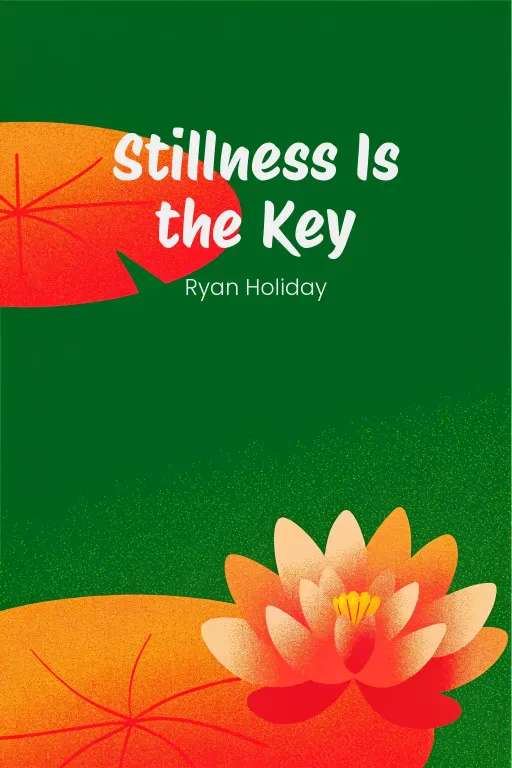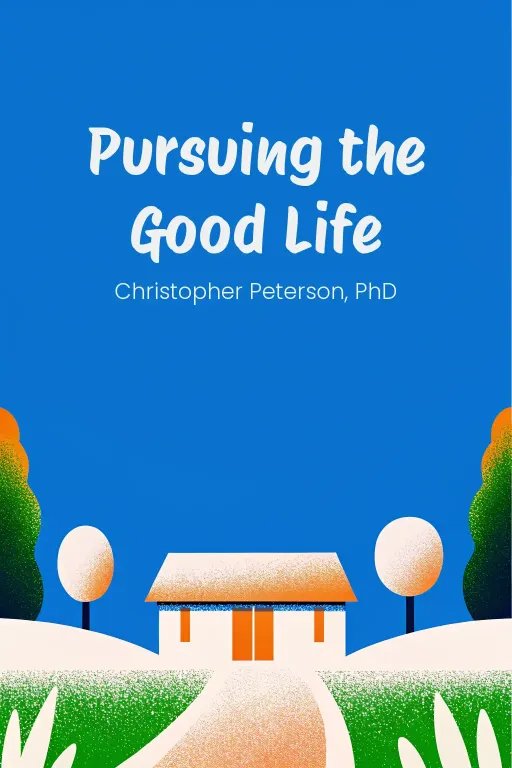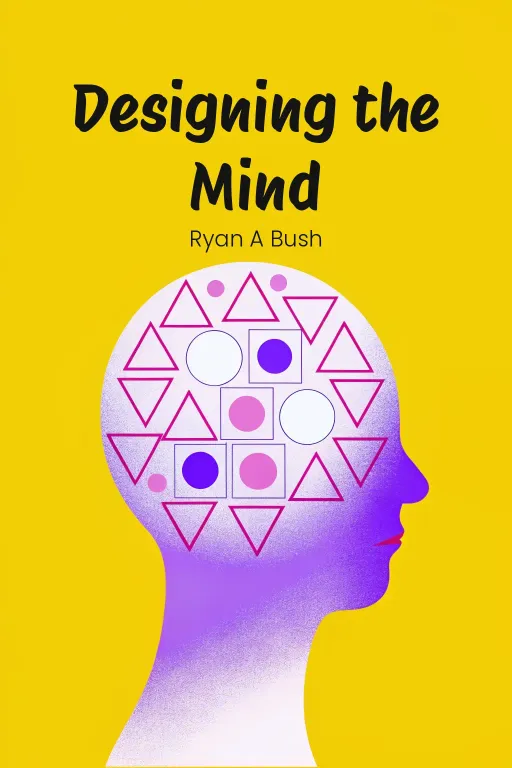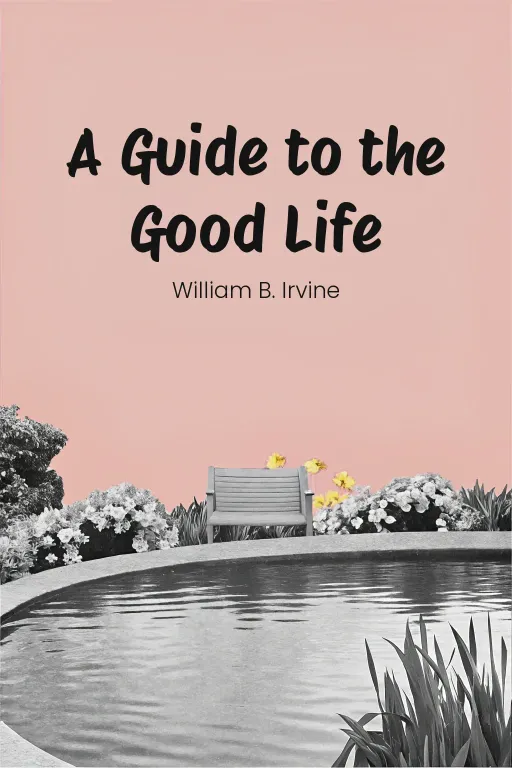
Life's Blueprint: Find Your True Calling
Podcast by The Mindful Minute with Autumn and Rachel
What on Earth Am I Here For?
Introduction
Part 1
Autumn: Hey everyone, welcome back! Today, we're diving deep into a book that's sparked a lot of conversations: “The Purpose-Driven Life” by Rick Warren. Rachel: Right, Autumn. The one that pretty much promises to answer the big question, "What's my reason for being?" Ambitious, to say the least! Autumn: It's more than just finding a general direction, Rachel. Warren breaks down five core purposes he believes God has for us: worship, community, spiritual growth, service, and sharing our faith with others. Rachel: So, it's essentially saying life isn't a solo act, but about aligning yourself with a larger plan. It sounds... inspiring, but also a bit daunting, wouldn’t you say? Autumn: Absolutely, and that's what we're going to explore today! We'll look at how to uncover our individual, God-given purposes. Then, we’ll discuss how to incorporate those five principles into our daily routines. Oh, and finally, we'll consider how our present choices impact eternity – the idea that living with purpose has long-term consequences. Rachel: Eternal consequences, huh? So, no stress, but every decision matters forever. Got it. Autumn: <Laughing> Don’t worry, Rachel! Hopefully, by the end, you'll see it’s not as overwhelming as it sounds. Let's start by breaking down what makes this book so impactful for those searching for meaning and direction. Rachel: Alright, if it only takes 40 days to change your life, we should probably get started then!
Discovering Divine Purpose
Part 2
Autumn: Okay, so we've set the stage. Let's dive into Warren's core idea – that the real meaning of life starts when we find God's purpose for us, not the other way around. It's a total flip from how we usually think, because Warren's point is, “Life isn't about us.” Quite a radical idea, right? Especially when we're constantly bombarded with messages about self-love and living our “best life.” Rachel: Seriously! It's like a direct hit. I mean, every other ad and half of Instagram are yelling, "It's ALL about you! Buy this, do that, chase your dreams!" Then Rick Warren calmly walks in and says, "Nope, sorry. You're not the star of this show." Autumn: Exactly! But the great thing about that switch is it actually takes a huge burden off us. Think about it: if life isn't all about us, then we don't have to stress about inventing meaning from scratch. Instead, we get to align ourselves with a purpose that's already waiting for us. That's where those five core purposes come into play. Rachel: Alright, before we jump headfirst into these five purposes, let's zoom out a bit. Why do we even need a purpose in the first place? What’s the big deal? Autumn: Well, Warren argues that without purpose, life just feels… scattered, without direction. He believes we're all searching for something bigger because that's how we're designed. It's part of our wiring, how God made us. And he uses stories, like the one about Joseph in the Bible, to really drive that point home. Rachel: Joseph, the ultimate soap opera character. Thrown into a pit by his brothers, sold off as a slave, falsely accused, tossed in jail, and then – BAM! – suddenly running the whole country. Talk about a plot twist! How did his life went from utterly tragic to totally epic? Autumn: Yes, but it only happened because of a purpose. Warren makes the point that even when Joseph was at his lowest, abandoned and betrayed, God was still working through his trials. It was all part of positioning him for his true purpose, which was to save his family and, eventually, entire nations from famine. Rachel: Okay, I think I see where Warren is heading. He is stating that even the worst parts of our lives actually serve a purpose in the grand scheme of things. Still, Autumn, how would you tell someone stuck in a dead-end job or nursing a broken heart that their suffering is neatly woven into some divine plan? Would that be a bitter pill to swallow? Autumn: It definitely can be, Rachel. That's why Warren keeps emphasizing the importance of trust. He acknowledges that we might not always see the "why" in those tough moments. But stories like Joseph's are there to remind us that pain can lead to transformation. It's about reframing our struggles, not as random misfortunes, but as opportunities to grow and align ourselves with God's bigger plan. Rachel: Okay, fair enough. Let's say that I buy into that. Where do we even begin to find this divine purpose? I mean, it's not like God conveniently hands out a roadmap, is it? No, “Step 1: Worship. Step 2: Fellowship.” Autumn: Honestly, that’s true! But Warren actually does give us tools to begin uncovering our purpose, and it revolves around engaging with Scripture, prayer, and really diving into some deep reflection. So how about we begin with Scripture? Rachel: The Bible, you say—our purpose manual with, what, 66 chapters? Sounds easy enough... Autumn: It's so much more than just a manual though, it's a way to align our perspectives with God. Like it says in Romans 11:36, "Everything comes from God alone. Everything lives by His power, and everything is for His glory." Doesn't that ground you? It tells us why we exist: for God's glory. Rachel: Okay, I see. But that sounds kind of abstract. I mean, "glorifying God?" What does that actually look like in real life? Autumn: That’s a fantastic question. Warren breaks it down into our everyday actions. For example, when we choose kindness over anger, patience over frustration, or gratitude instead of entitlement, then we reflect God's character. It's not just about singing hymns on Sunday but about showing God's glory through how we live every single day. Rachel: So are you telling me that even by not yelling at the guy who cuts me off in traffic, is that a form of worship? Autumn: Absolutely! Worship is a lifestyle, not just a moment. Which leads us to the other tools: prayer and introspection. Rachel: Okay, I get prayer – send God a message, hope He's not too swamped to read it. But what has introspection got to do with purpose? Autumn: Think about it like this: introspection is like a check-up for your heart. It's about asking ourselves, "Where am I putting my energy? What truly motivates me?" It goes hand in hand with prayer, because when we truly seek God's guidance, we can correct our course whenever we start drifting away from His purpose. A solid example that always stood by me is Queen Esther. Rachel: Ah, the original queen who risked everything to save her people – an ancient-times superhero story. Autumn: Absolutely. But the fascinating thing is that before Esther acted, she sought clarity from God. She didn't just barge into the king's presence. She fasted and prayed. That period of reflection gave her the courage and the insight to step into her purpose at just the right moment. Rachel: That makes a lot of sense. Reflection, combined with taking action. I get that. But what about modern believers? Most of us aren't exactly saving kingdoms. Does introspection really help with, say, choosing a career path or navigating family drama? Autumn: It does because it helps us discover our unique SHAPE – our Spiritual gifts, things that tug at our Heart, our Abilities, our Personality, and our life Experiences. Warren says that God uses all these different elements to equip us for our distinct roles in His plan. So, whether it's becoming a mentor to someone at work or volunteering at a local shelter, then every moment of service contributes to His purposes. Rachel: Okay, I'll admit that SHAPE acronym is pretty clever. It definitely makes this whole "find your purpose" thing seem less mystical and more doable. Autumn: Exactly. And it all circles back to alignment. When we focus on using these tools – Scripture, prayer, reflection – it's like we're recalibrating a compass. We might wander off course sometimes, but these practices help guide us back to our true north, which is God's plan. Rachel: Okay, we've got the broad framework. Life's purposes are worship, fellowship, discipleship, service, and mission. And we've also got the tools that will help us uncover them. But one thing's still nagging at me: What about the obstacles? Aren’t there things like fear, pride, uncertainty, those don't just magically disappear when you've decided to follow God's plan, right? Autumn: You're absolutely right, Rachel. And that's where surrender comes in – letting go of our need to control everything and trusting in God's wisdom above our limited perspective. Let's think about the story of Abraham...
Living Out the Five Purposes
Part 3
Autumn: So, once you really understand these divine purposes, the next step is seeing how they can change your day-to-day life. What’s so great about living out these five purposes is how practical they are, how easily you can take action. It really bridges what you believe and how you live. Whether it's worship, fellowship, discipleship, service, or mission, each one is designed to bring meaning to your regular schedule, your challenges, and the choices you make. Rachel: Right, so let’s move from theory to reality, shall we? How do these big spiritual ideas work when you're dealing with angry emails and a kid throwing cereal everywhere on a Tuesday morning? Let's start with worship. People usually think of hymns, church pews, organs – the whole church scene. But you're saying it's more than that? Autumn: Absolutely. Worship is a way of life. It's everything we do that shows God's glory, from important decisions to small gestures. It's living in a state of wonder and surrender, seeing every moment as a chance to honor God. Instead of being limited to church on Sundays, it becomes part of our everyday life. Rachel: Okay, but what's the practical side of "surrender"? Is it just letting things happen and saying, "God's in control," or is there more to it than that? Autumn: Surrender is a deliberate choice. It's not about being passive, but actively choosing to trust God in every situation, even when things are difficult. Remember the story of Peter in Luke 5? Jesus tells him to cast his nets after he’d spent all night catching nothing. Peter's tired, frustrated, and probably thinks it's pointless, but he listens. And because of that trust, he catches a miraculous amount of fish. In this sense, surrendering opens the door for God to work in ways we couldn’t imagine. Rachel: Okay, that's a good story, but let's get specific. What if I'm in one of those "pointless" moments? Maybe I hate my job or feel like I’m not good enough. What does worship look like when you're mainly feeling frustrated? Autumn: That's a great question, and that's where daily habits come in. Warren suggests simple actions like beginning your day with prayer, dedicating your work to God, or finding things to be grateful for even when things are hard. Psalm 147:11 reminds us, “The Lord is pleased with those who worship Him and trust His love.” And that means trusting that God sees the big picture, even when our efforts seem pointless. Rachel: So, basically praising God even when everything is going wrong. That… doesn't seem right. Autumn: It doesn't, but it can change things. Take Paul and Silas in Acts 16, for example. They're in prison—beaten, chained, and probably exhausted—but they start singing hymns of praise. Their worship wasn’t about their circumstances, but about their faith in God's power. And what happens? An earthquake opens up the prison doors. Worship shifts your focus from your problems to God's power. Rachel: Fine, I'll admit that's inspiring. But let's talk about fellowship, which makes me a little uncomfortable. I know community is important, but honestly, church fellowship sometimes feels like forced small talk over bad coffee. Autumn: <Laughing> Oh, I know what you mean! But Warren has a much bigger view of fellowship. True fellowship isn’t just surface-level chatting; it’s about being part of a spiritual family where people are honest, accountable, and supportive. It’s about building relationships that show God’s love. Rachel: Right, easier said than done, though. If we're being honest, most communities, including church ones, struggle with being vulnerable. People smile, nod, and keep their problems hidden. How do we get past that? Autumn: It starts with being authentic, which Warren says is the foundation of real fellowship. Think of James 5:16: "Confess your sins to each other and pray for each other so that you may be healed." That kind of honesty isn't easy, but it can change things. When we share our struggles, we create space for healing, support, and deeper connection. Rachel: So you mean I have to risk being honest with people about my flaws? That’s not exactly a recipe for relaxing Sunday mornings. Autumn: True, but think about what's at stake. When we allow ourselves to be known—flaws and all—we create bonds that can help us through life's challenges. Consider the early church in Acts 2. They shared everything—time, resources, even meals. That level of commitment made their community a lifeline for each other. Rachel: Okay, that sounds great in theory. But what about conflict? Because, honestly, the closer you get to people, the more likely things are to go wrong. Autumn: No one avoids conflict, which is why Warren stresses the importance of grace. Jesus actually gives us a method for resolving disputes in Matthew 18. The first step? Talk to the person privately. It’s about addressing issues with humility and love instead of letting anger build up. Rachel: Hmm. Okay, let’s move on to discipleship, because this seems like the biggest challenge. Becoming “Christlike” sounds… impossible. Where do you even start? Autumn: It starts with knowing that discipleship is a lifelong journey, not an instant makeover. It’s about consistently trying to reflect Christ’s character. And that growth often happens when things get tough. Rachel: So, challenges shape us. That sounds nice on a church poster, but what does it really mean? Autumn: Think about the story of Joseph we talked about earlier. Sold by his brothers, falsely accused, imprisoned—those weren’t just random problems. Each hardship prepared him for saving lives during a famine. James 1:2-4 puts it well: “Consider it pure joy… when you face trials of many kinds, because you know that the testing of your faith produces perseverance.” Trials make us better, teaching us patience, faith, and resilience. Rachel: So, basically, no shortcuts—just perseverance, patience, and suffering. Got it. Autumn: <Laughing> Well, the good news is we’re not expected to do it on our own. The Holy Spirit empowers us, guiding and strengthening us along the way. Discipleship is about working with God in our lives. Things like reading Scripture, praying, and having supportive relationships help us stay focused. Rachel: Okay, I'll admit—this is starting to make sense. Worship, fellowship, discipleship, they all seem to connect. But what about service? That sounds like the most work. Autumn: Service is where we put our faith into action. It’s about using what makes you unique—your SHAPE—to bless others. Whether it’s your God-given gifts, your passions, your abilities, or even your experiences, God designed each of us to serve in specific ways. Rachel: Okay, give me an example. Autumn: Sure. Let’s think about Joseph again. His ability to interpret dreams wasn’t just a random talent—it was a gift from God that allowed him to save Egypt during a famine. Warren encourages believers to think about their SHAPE to find roles where they can serve effectively and happily. Rachel: So it's not a one-size-fits-all thing. You're saying my talents, whether it’s organizing data or fixing cars, can somehow fulfill a spiritual purpose? Autumn: Exactly! Every act of service, no matter how small, contributes to God’s plan. Jesus modeled this when He washed His disciples’ feet, showing that serving others is at the heart of God’s kingdom. Rachel: Alright, you've convinced me about service. But here's the big one: mission. Sharing God's love and message? That sounds intimidating, especially if you’re not a natural preacher. Autumn: Warren emphasizes that mission doesn’t have to be standing on a street corner with a sign. It’s about living with a sense of mission – showing Christ in your everyday interactions. For example, sharing your faith through personal stories can have a big impact. Rachel: So, if someone at work asks how I stay positive when things are tough, I could talk about my faith instead of just saying, "Oh, I'm just a positive person"? Autumn: Exactly! The important thing is to be genuine. When you share how your faith shapes your life, it invites others to think about their own spiritual path. And those small moments of honesty can have a lasting impact.
Eternal Impact and Legacy
Part 4
Autumn: So, with those practices sorted, next up is how to actually “keep” living this purpose-driven life. And yeah, this is where Warren delves into what he calls “eternal impact and legacy.” Rachel: Ah, right. So, scaling up from the everyday to the big, philosophical questions. Autumn: Totally. It's kind of the culmination, isn't it? Aligning ourselves with God's purpose, stepping away from being so self-absorbed, and ultimately, living in a way that, you know, leaves a lasting mark, not just in our lifetime but, like, beyond. The idea is our daily decisions, values, how we live out these five purposes—they send out ripples way beyond our earthly lives. Rachel: Okay, so Warren’s pushing us to think beyond just the immediate. No pressure, then, but apparently, everything we do has eternal significance. Where does one even start with something that massive? Autumn: He begins with stewardship. The basic idea is that life itself, everything we have, is a gift entrusted to us by God. Stewardship kind of reframes how we think about our time, our abilities, our relationships—even our money. It's less about owning things and more about responsibility. Rachel: Responsibility? Managing every part of my life like a, uh, spiritual accountant? Sounds a tad intense. Autumn: I get where you're coming from, but it's more about being intentional than rigidly accounting. Think about the parable of the talents, right? Those servants who were given resources to manage? Two worked hard and doubled what they had, but one buried his out of fear. The master praised the first two, scolded the last, because he wasted the chance to do something meaningful. Rachel: Ah, the "use it or lose it" story, right. Autumn: Exactly! So, God gives each of us these unique resources, and how we use them shows what we truly value. Actually using those resources on things that match God's plans—like supporting a ministry, mentoring someone, or just, being generous with our time—creates a legacy that goes beyond our own lives. Rachel: Okay, but what if someone's thinking, "I barely have enough time or money to make it through the week, let alone think about "eternity"? Stewardship seems pretty detached from reality when the bills are stacking up. Autumn: And that's where Warren talks about materialism. He says chasing wealth, possessions, or status, is a big obstacle to living with purpose. It's like that saying, "You can't serve two masters." Rachel: So, Warren wants us to just ditch the rat race and give up our worldly desires. Bit idealistic, no? Autumn: <Laughs> he’s not saying ditch everything! But to shift your priorities. He uses the example of "Kingdom Builders"—people who use financial success for God's bigger picture. Like Saddleback members who fund mission projects through their resources. Rachel: Right, so, instead of hoarding wealth, these Kingdom Builders are putting it into something with more lasting value. But what actually drives that mindset? It's not an easy shift, especially in a world that tells us bigger houses and cars are success, no? Autumn: Well, I think that's largely where contentment comes in, huh? It's seeing that earthly treasures are temporary. Warren wants people to think about their money decisions and whether they align with God's whole thing. Instead of thinking, "What can this buy me?" It's, "How can this go toward things that matter?" Rachel: A kind of filter for investing in eternal purposes. I can see the appeal, even reframing every, single financial decision seems like a very long road. Autumn: Challenging, for sure. But the reward is pretty immeasurable though. By shifting the focus away, they’re freeing themselves from that constant pursuit of "more" and putting their energy where it actually counts. Rachel: Got it, stewardship and battling materialism—that's the foundation. What's up next in Warren's secret sauce for a lasting impact? Autumn: The final ingredient is investing directly in God's work. Giving your time, talents, resources to, to advance God's mission, to show His love. Warren explains that it’s not just about these grand gestures; it's also in the small acts of service. Rachel: Let me guess, another story from the Bible? Autumn: You got it. It's Jesus washing His disciples' feet, right? Humble, servant-like. Usually done by a household servant. But Jesus, the Son of God, did it. It taught us that greatness in God's world is about serving. Rachel: Yeah, I’ve heard that one plenty of times, but it is always such as powerful image. It really flips the usual power dynamic on its head, doesn't it? True leadership is about serving others, not bossing them around. Autumn: Exactly! And exactly the same principle applies to how we invest in God’s Kingdom these days. Whether it’s being a mentor to a student who’s struggling, giving time and help at a place that feeds people, or just, even lending an ear to someone in pain—every single little thing like that will always matter. Rachel: Well, it's quite something to think about how all these seemingly little things could ripple outward... It's easy to feel that it’s just a drop in the ocean, yeah? Autumn: Yeah, but every drop helps to make a wave. Warren backs this up with The Bible, where Paul says about finishing the race and completing the task ‘of sharing the good news of God’s grace’. It’s not about doing everything, right? But about faithfully just doing what’s in front of you, with a strong sense of the long-term. Rachel: So, it's not ticking off a great cosmic checklist. But it is being faithful in the moment, and trusting God with what happens, right? Autumn: Precisely. Each choice to serve, to give, or just to show Christ’s same love, helps to create a legacy that has a lasting impression. It’s a way of living that says, “I trust God to make these little seeds that I plant bigger, into something that is around for the long-haul.”
Conclusion
Part 5
Autumn: Okay, so let's tie everything together, shall we? Today, we dove into Rick Warren's “The Purpose-Driven Life”, and its main point, which is that finding your true meaning comes from lining up with God's five purposes: worship, fellowship, discipleship, service, and mission. These are not just fancy words, right? They’re actually practical, step-by-step ideas for guiding us in everything we do, from the routine to the really important stuff. Rachel: Right, and we talked about how these purposes don't just change what we do, but, more importantly, how we see things. From giving up control when we worship, to building real connections in fellowship, to letting challenges shape us into better people through discipleship, to serving using our unique SHAPE, and finally, embracing mission by living intentionally and authentically. That’s a lot! Autumn: Exactly! And Warren doesn't stop there. He challenges us to look beyond just what's happening right now and think about what really lasts: building a legacy based on God's eternal purposes. It's not about getting rich or famous, but about what we give—our time, our skills, everything—for His kingdom. Rachel: It really makes you rethink everything, honestly. It’s not about being the star of your own show, but about playing a part in God's way bigger and better story. So how should we use this for guide in our real lives? Autumn: So, here's what we want you to think about this week: Really think about these five purposes. Ask yourself, "Am I living with intention? What small, but meaningful, things can I do today to match God's plan?" Remember, it's not about having all the answers, it's about doing your best with what you have right now. Rachel: And hey, don't let the idea of "eternal impact" scare you. It's like Autumn said earlier - every little act of love and service creates ripples that matter, even if you can't see them right away. That said, is there a danger in focusing too much on the “impact” rather than the act itself? Autumn: Good point! I think as long as we stay focused on honoring God, we should be good. Whether it's choosing to be grateful, showing understanding, or just listening to someone who needs to talk, those actions reflect God's glory and, like you were saying, create a legacy that lasts way beyond our lifetime. Rachel: Great. So, go live with purpose—and maybe, just maybe, don’t honk at that guy who cuts you off tomorrow. Start small, folks. Autumn: <Laughs> Start small, but think big! Thanks for joining us on this journey today. We'll catch you next time!









